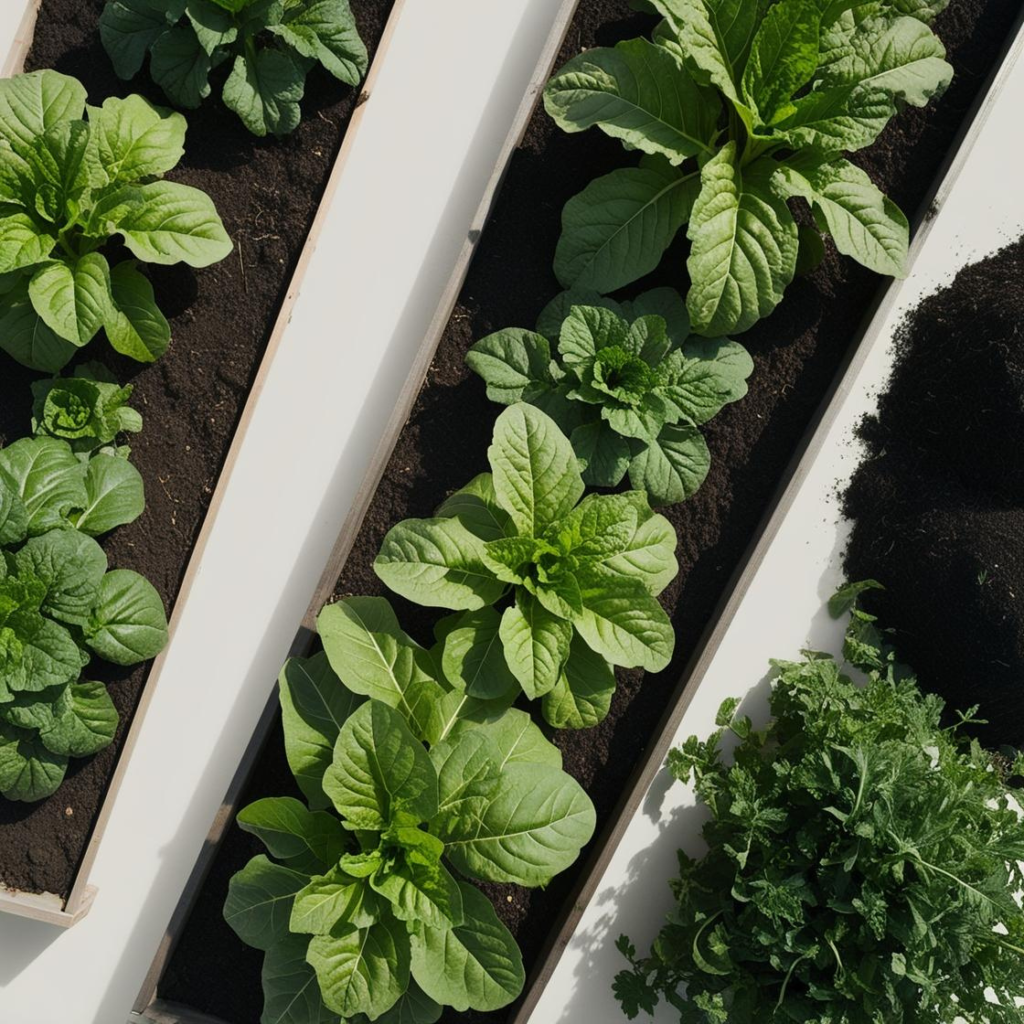Gardening isn’t just a hobby; it’s a chance to connect with nature, improve your health, and enjoy the satisfaction of growing your own food. There’s something deeply rewarding about picking fresh vegetables from your garden—knowing they were nurtured by your hands and protected from harmful chemicals. Organic fertilizers are one of the best ways to promote the health of your plants while keeping your garden sustainable. But with so many options out there, which ones should you choose?
In this guide, we’ll dive into the five most effective organic fertilizers for vegetables, offering insight into how they work, their benefits, and how to use them to create a thriving garden. Whether you’re growing tomatoes, carrots, or leafy greens, these fertilizers will help you boost plant health and soil fertility without resorting to synthetic chemicals.
1. What Are Organic Fertilizers?
Before diving into the top organic fertilizers for vegetables, it’s important to understand what makes an organic fertilizer different from synthetic options. Organic fertilizers come from natural sources—like plants, animals, and minerals—providing essential nutrients to your soil and plants in a more environmentally friendly way.
Why Choose Organic Fertilizers?
- Soil Health: Organic fertilizers improve soil structure and increase its ability to retain moisture, which helps your plants thrive. They encourage the growth of beneficial microorganisms, which in turn help break down organic matter and release nutrients into the soil.
- Nutrient-Rich: Organic fertilizers provide a slow, steady release of nutrients, ensuring your plants have a consistent supply of the elements they need, such as nitrogen, phosphorus, and potassium.
- Safety: Unlike synthetic fertilizers, organic options are free from harsh chemicals, which means they are safer for both your plants and the surrounding environment. They don’t leach into water sources and harm beneficial insects or animals.
2. Tip 1 – Compost: The Ultimate Organic Fertilizer
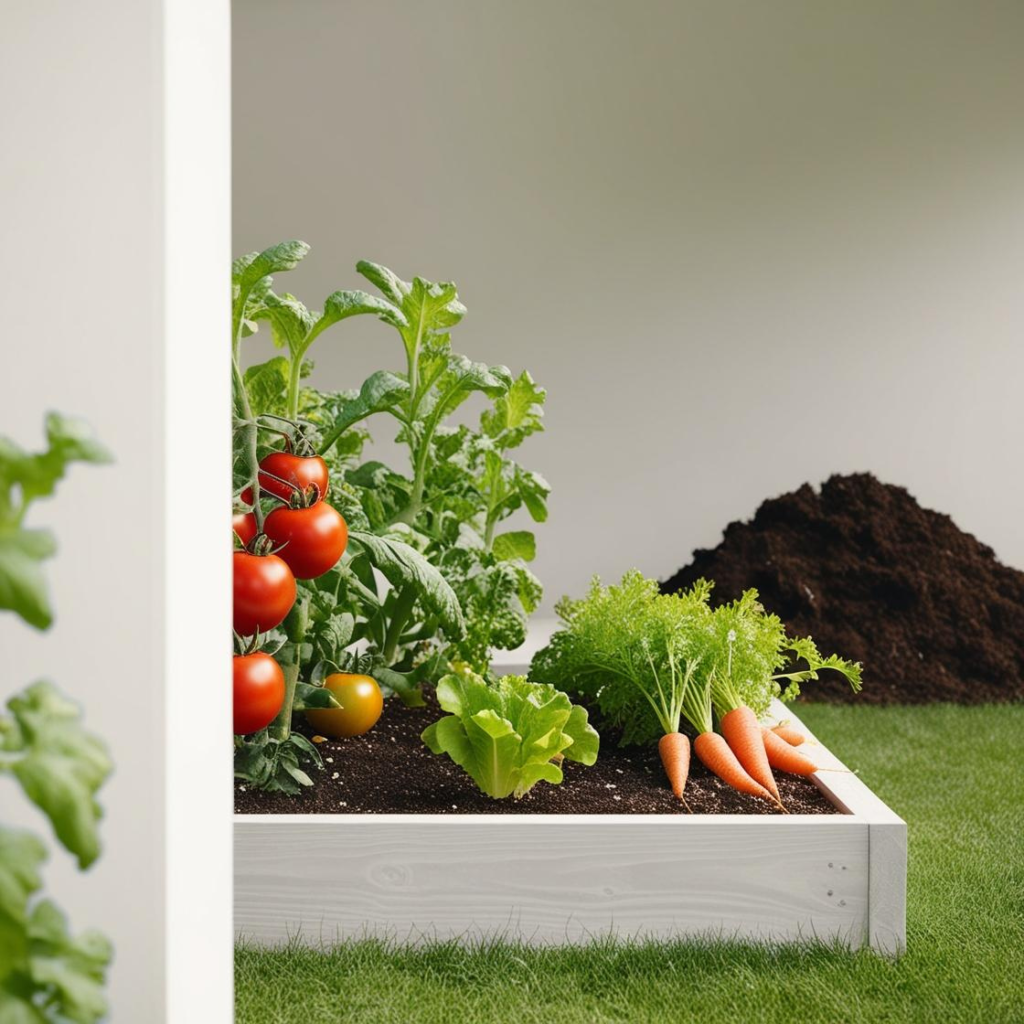
Compost is often referred to as “black gold” by gardeners, and for good reason. It’s one of the most versatile and effective organic fertilizers you can use. Essentially, compost is a mix of decomposed organic matter, such as plant material, food scraps, and manure, that can nourish your garden in countless ways.
Why Compost Is Essential for Your Garden
- Balanced Nutrient Profile: Compost provides a full spectrum of nutrients needed by vegetables. From nitrogen to calcium, compost helps support healthy growth from root to leaf.
- Improves Soil Structure: Regular use of compost improves the texture of your soil, helping it retain moisture and drain properly. This is particularly important for sandy or clay-heavy soils that can be hard to work with.
- Promotes Soil Life: Compost encourages beneficial soil microorganisms, which can help plants absorb nutrients more efficiently.
How to Use Compost
- Mix it in: Incorporate compost directly into your soil at the beginning of the planting season to improve soil fertility.
- Top-dress: Apply a thin layer of compost over the soil surface during the growing season to provide nutrients gradually.
3. Tip 2 – Manure: A Nutrient-Rich Fertilizer for Stronger Vegetables
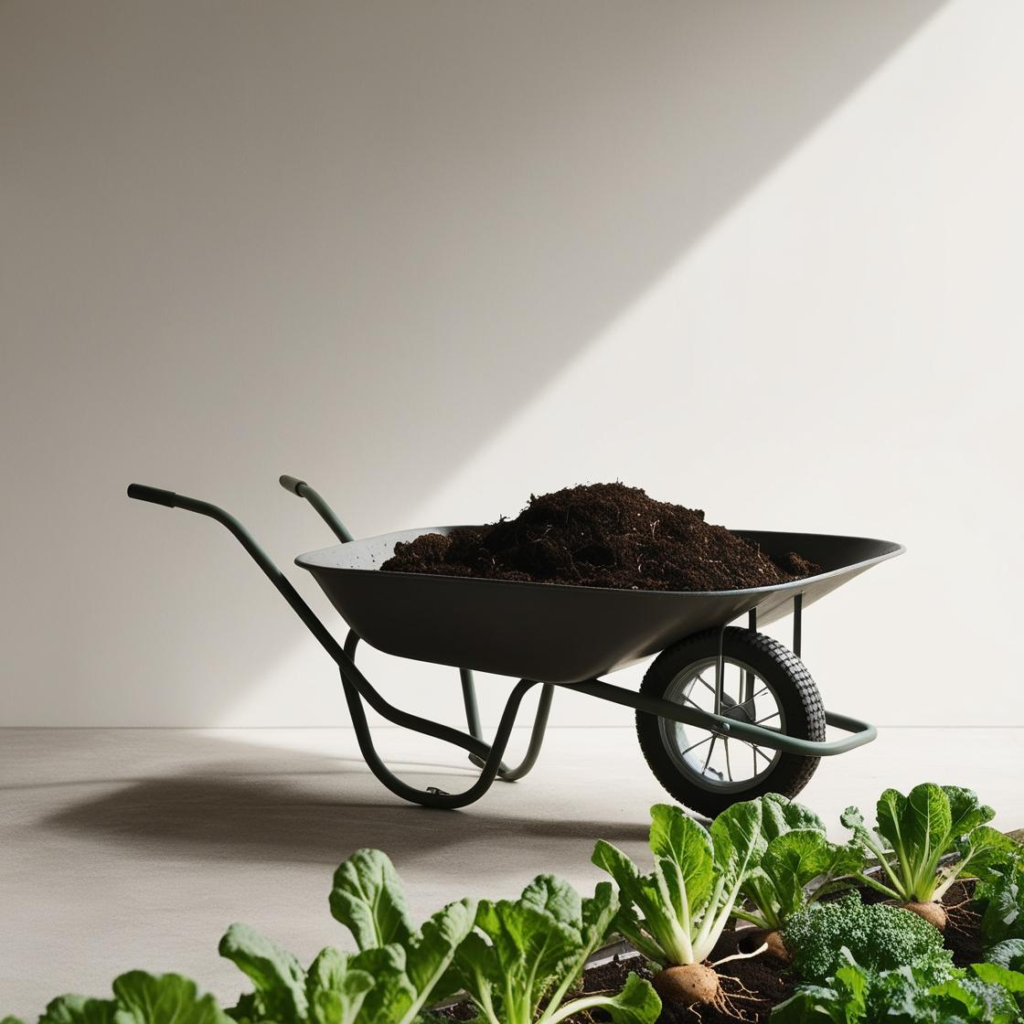
Manure has been used for centuries as a natural fertilizer. It’s packed with essential nutrients that can promote rapid growth, especially for vegetables that require a lot of nitrogen. While manure is incredibly effective, it’s important to use it correctly to avoid over-fertilizing your plants.
Types of Manure
- Cow Manure: Known for being mild and nutrient-rich, cow manure is perfect for a variety of vegetable plants. It’s a great option for large vegetable beds.
- Chicken Manure: Chicken manure is high in nitrogen, making it ideal for leafy vegetables like lettuce, spinach, and kale.
- Horse Manure: With a more balanced nutrient profile, horse manure is excellent for soil structure and works well with vegetables like tomatoes and beans.
How to Use Manure
- Compost Before Use: Fresh manure can burn your plants, so it’s best to compost it before applying. This also helps eliminate any harmful pathogens.
- Apply in Fall or Early Spring: Manure should be spread in the fall or early spring before planting season, giving it time to break down and release nutrients.
4. Tip 3 – Fish Emulsion: A Liquid Fertilizer for Immediate Results
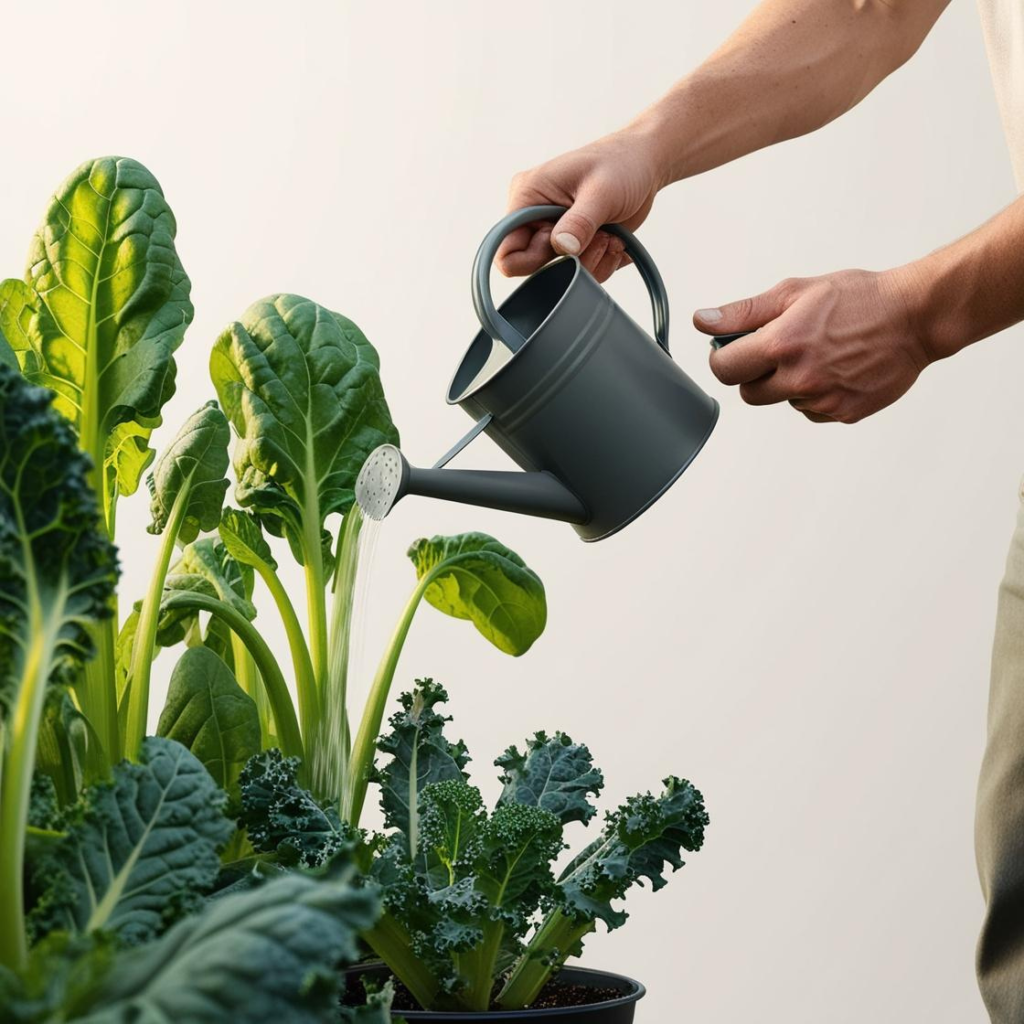
Fish emulsion is a liquid fertilizer made from fish byproducts, such as fish meal or fish oil. It’s a fast-acting option that provides immediate nutrition for your plants. Fish emulsion is rich in nitrogen and other trace elements that promote vigorous growth and healthy vegetable plants.
Why Fish Emulsion Works for Vegetables
- Fast-Acting: Because it’s in liquid form, fish emulsion is absorbed quickly by plant roots, offering immediate results in terms of growth.
- Rich in Nitrogen: Fish emulsion is particularly beneficial for leafy green vegetables that need plenty of nitrogen for healthy foliage.
- Supports Plant Health: The trace minerals found in fish emulsion help improve overall plant health, making them more resistant to diseases and pests.
How to Use Fish Emulsion
- Dilute and Apply: Fish emulsion is highly concentrated, so it needs to be diluted according to the manufacturer’s instructions. Apply it directly to the soil around your plants, or use it as a foliar spray.
- Use Every 2-4 Weeks: To maintain consistent growth, apply fish emulsion every 2-4 weeks throughout the growing season.
5. Tip 4 – Bone Meal: Boosting Root Growth for Stronger Plants
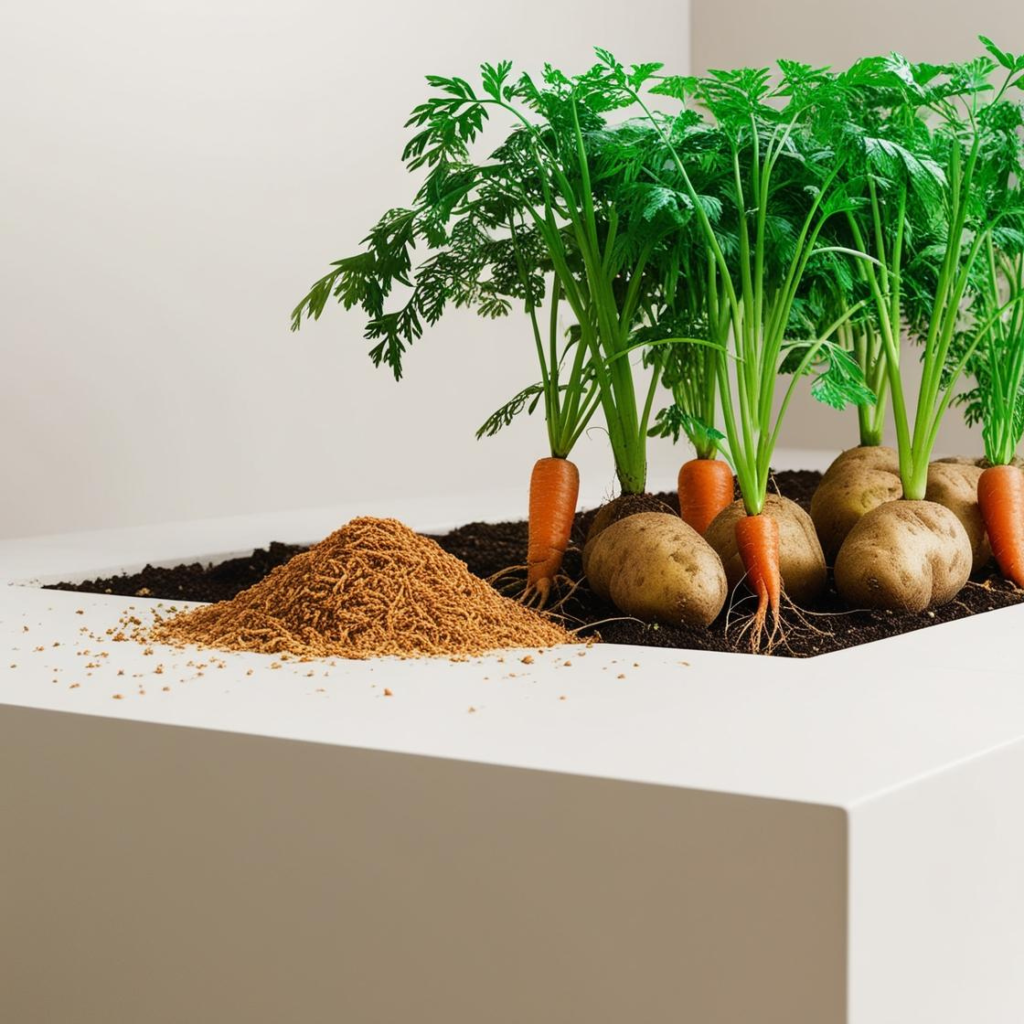
Bone meal is an excellent source of phosphorus and calcium, two essential nutrients for strong root development and overall plant health. It’s particularly useful for vegetables that rely on strong root systems, such as root crops (carrots, potatoes) and flowering plants.
Why Bone Meal Is Great for Vegetables
- Promotes Root Development: Phosphorus is critical for the development of strong, healthy roots, which is why bone meal is particularly beneficial for root vegetables.
- Supports Flowering and Fruiting: Bone meal helps improve the flowering and fruiting process in vegetables like tomatoes and peppers.
How to Use Bone Meal
- Incorporate Into Planting Holes: Mix bone meal into planting holes at the time of transplanting or sowing seeds to give roots a nutrient boost.
- Top-Dress in Spring: Apply bone meal around the base of plants in early spring for continuous support throughout the growing season.
6. Tip 5 – Seaweed and Kelp: The Ocean’s Fertilizer for Vegetables
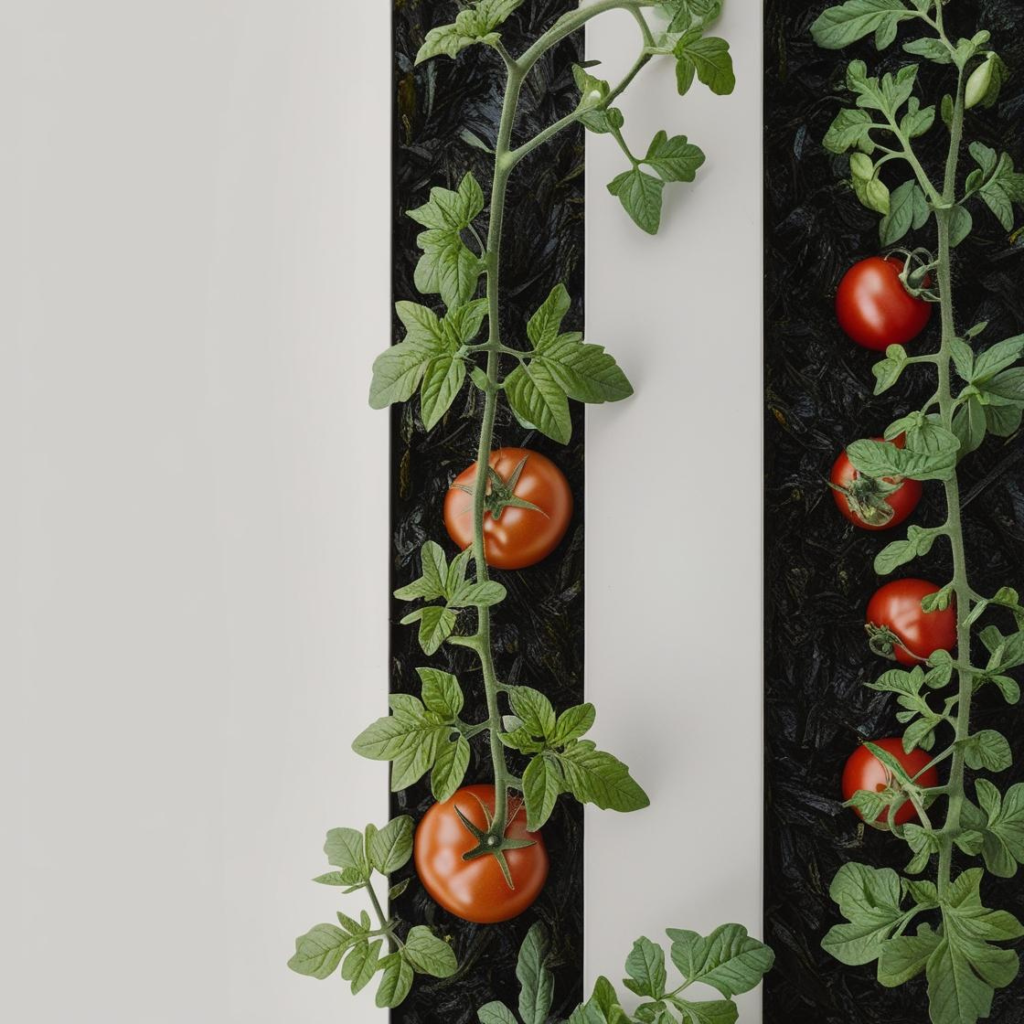
Seaweed and kelp-based fertilizers are becoming increasingly popular due to their incredible nutrient density. These fertilizers are rich in trace minerals, growth hormones, and vitamins that can promote healthy, resilient vegetable growth.
Why Seaweed and Kelp Are Beneficial
- Trace Minerals: Seaweed and kelp provide over 60 trace minerals, including iodine, magnesium, and potassium, which plants need in smaller amounts but are still essential for overall health.
- Growth Hormones: These fertilizers contain plant hormones that help regulate plant growth and improve the resistance to environmental stress.
- Enhance Disease Resistance: The natural compounds in seaweed help boost plants’ ability to fight off diseases and pests.
How to Use Seaweed and Kelp
- Foliar Spray: Mix liquid seaweed fertilizer with water and spray it directly onto the leaves to provide quick nutrition.
- Soil Application: For long-term benefits, mix dried seaweed or kelp into the soil before planting.
7. How to Apply Organic Fertilizers Correctly for Vegetables
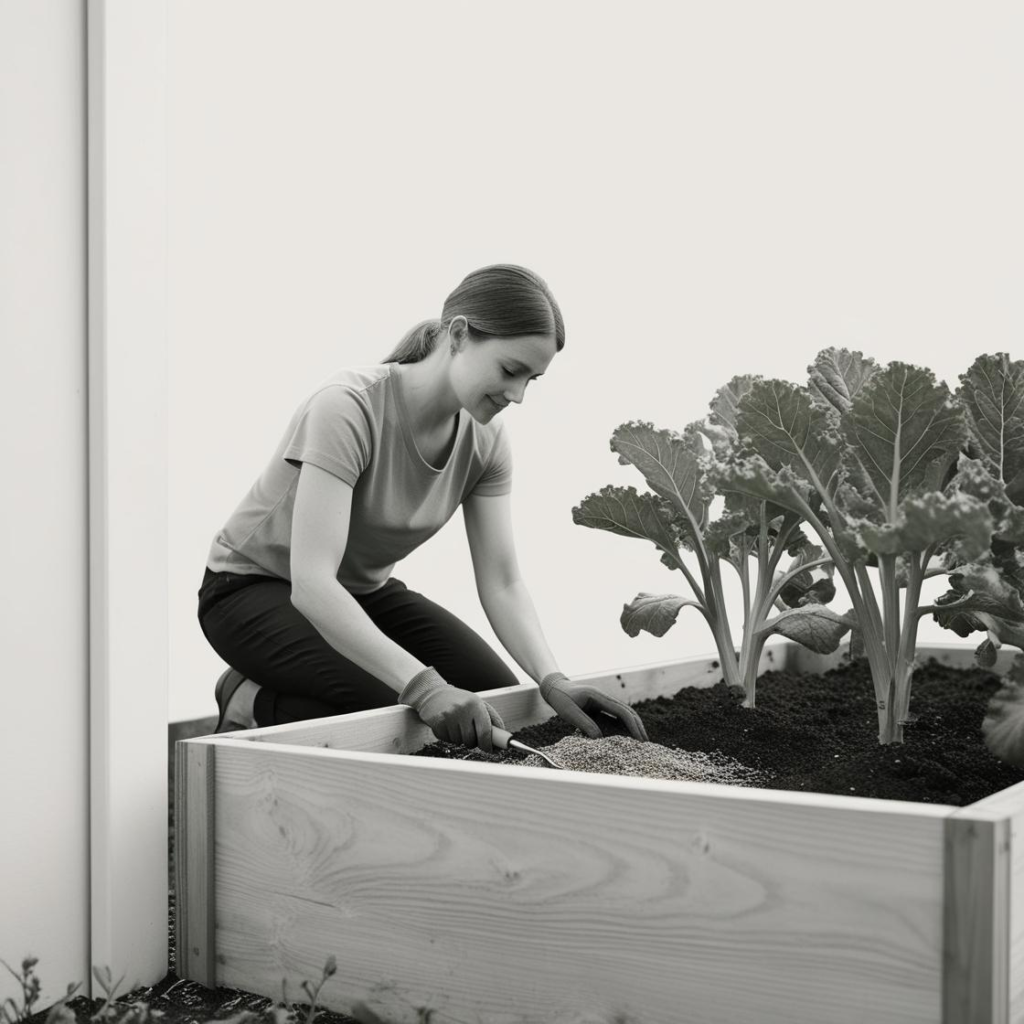
Applying organic fertilizers correctly is key to getting the most out of them. Over-application can be just as harmful as under-application. Here are some best practices to follow:
Best Practices for Applying Organic Fertilizers
- Timing: Apply fertilizers at the right stages of plant growth. For example, use compost early in the season, and apply nitrogen-rich fertilizers like manure and fish emulsion during the growing season.
- Proper Application: Always follow the manufacturer’s recommended dosage to avoid over-fertilizing, which can harm your plants and soil.
- Rotate Fertilizers: Rotate between different types of fertilizers to ensure your plants get a wide range of nutrients and avoid nutrient imbalances.
Conclusion: Grow Healthy, Vibrant Vegetables with Organic Fertilizers
Now that you know about the top organic fertilizers for vegetables, it’s time to put this knowledge to work. Whether you choose compost, manure, fish emulsion, bone meal, or seaweed and kelp, each of these fertilizers will help your garden thrive. Remember, healthy soil is the foundation for a successful garden, and using organic fertilizers not only boosts plant health but also ensures sustainability for future generations.
Start applying these organic fertilizers today, and watch your garden grow stronger, healthier, and more productive than ever before. Happy gardening!

